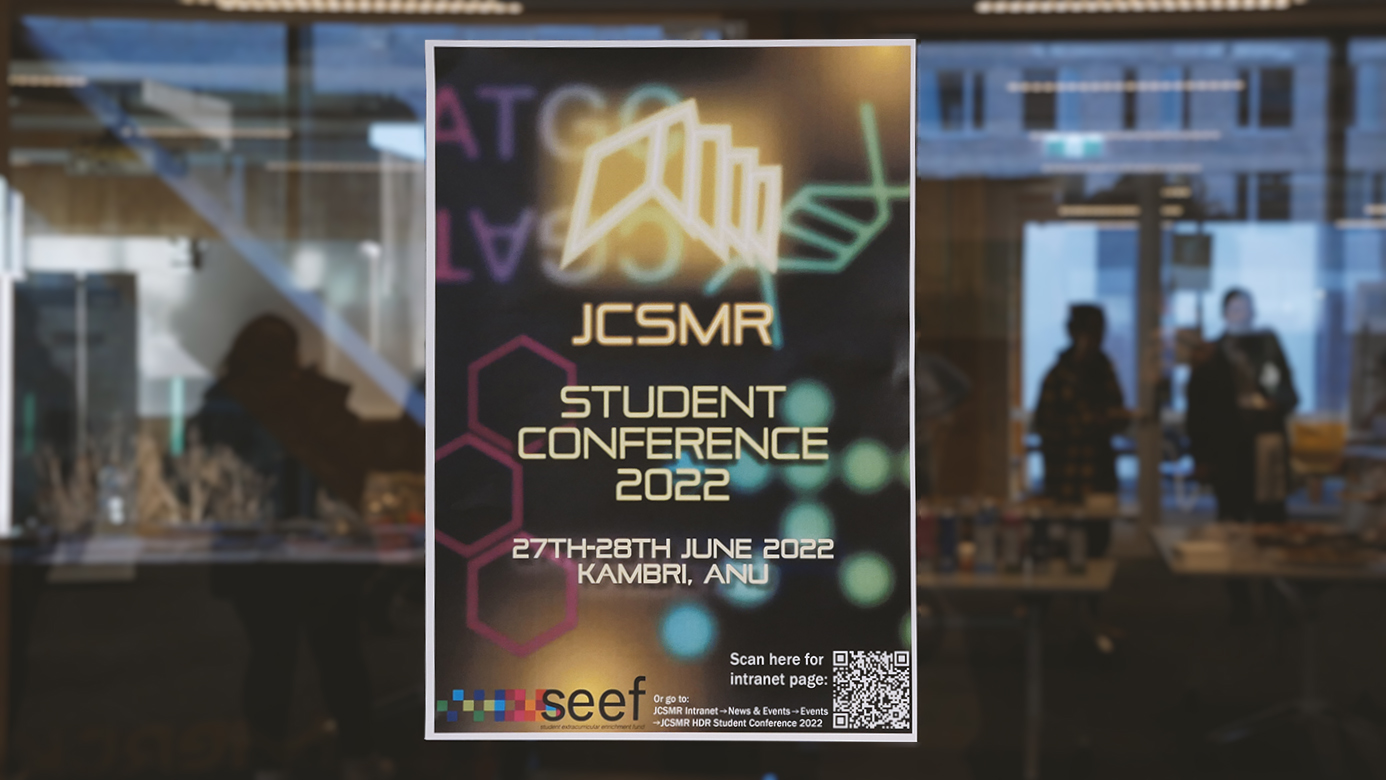A look back into the first JCSMR HDR Conference

At the end of June, some 35 of our PhD, Masters, and Honours students got together for a busy two days of science.
What brought us together was the inaugural JCSMR HDR Conference, and it was, in my opinion, one of the best student events I’ve attended at JCSMR.
A stage to share your work
The conference provided a unique chance for students to present their research in a supportive, friendly environment.
During the presentation sessions, I heard from students at various stages of their research, covering everything from intermittent fasting to tumour microenvironments and treating AMD—just to name a few.

Yu-Ting (Jennifer) Hung presenting during the JCSMR HDR Conference. Image: Cynthia Turnbull
I found this component particularly engaging, as I also had the chance to present my work on the closed-loop model of translation as the very first speaker!
Up until now, most of the presentations I have given on my PhD work have been to an audience doing similar work, so this conference was a great way to practice presenting to a wider, more generalist audience.
As I’m slowly approaching the later stages of my PhD, the preparation for the talk itself was a timely reminder to always keep the bigger picture in mind rather than only spending my time fussing over replicates and p-values.
Giving the talk to a room of familiar students also allowed me to work on my stage presentation skills in an environment where I already felt quite comfortable.
Overall, being able to participate in the session directly was a worthwhile experience. I encourage all students to apply to give talks where possible.
A peek into the future
In addition to the great talks and posters presented, we also had many research and career development sessions dispersed throughout the conference.
For example, in an informative mentoring panel session, I learnt about the importance of finding mentors, keeping them and how they are indispensable for navigating our future career paths.
One unified message that came out of that session—echoed by all the panel members—was the importance of finding the right mentor-mentee fit for you and how this might look different for different people.
Panellists at the Mentoring session. L-R: Associate Professor Riccardo Natoli, Dr Joshua Chu-Tan, Dr Daniel Enosi Tuipulotu, Dr Ulrike Schumann, and Karlee Johnston. Image: Calo Huang
The career session on Day 2 was particularly useful. During the session, we heard from a panel of JCSMR alumni who had gone on to do non-academia jobs after their PhDs. The panellists had varied jobs, from management consulting to venture capital and industry.
As PhD students, we often hear people say that our PhDs will serve us well even if we do not decide to go down the path of academia, but we are rarely informed or guided in what this transition might look like. Therefore, it was great to hear from people who had once been in our shoes and could give us insight into how a medical science PhD can be translated into diverse professional settings.
One key takeaway was that the problem-solving, communication and analytical skills we develop during our PhDs will be in demand from a range of employers. We do not need to limit our future career choices to just academia.
An end of a beginning
After two days of excitement and inspiration, the conference ended with a drinks and canapés closing event, where prizes were given out for best speakers, posters and photo competition winners. (Congrats to all the prize winners!)
Students and academics at the Closing Event. Image: Calo Huang
Science aside, perhaps the best part of the conference was the chance to pause, put down our pipettes and mice cages and come together as a student cohort.
PhD is a unique and often challenging time of our lives, so it’s important to get to know the people who can best understand what we are going through—our peers. The conference was a way to get to know each other better, develop a sense of camaraderie and remind ourselves that we’re not alone in our research journeys.
To sum up, the conference was an absolute success. Thank you to the entire organising committee (especially Sarah!) for putting it together.
Following the success of this one, I hope that we can make the JCSMR HDR conference a reoccurring annual event in the future.
